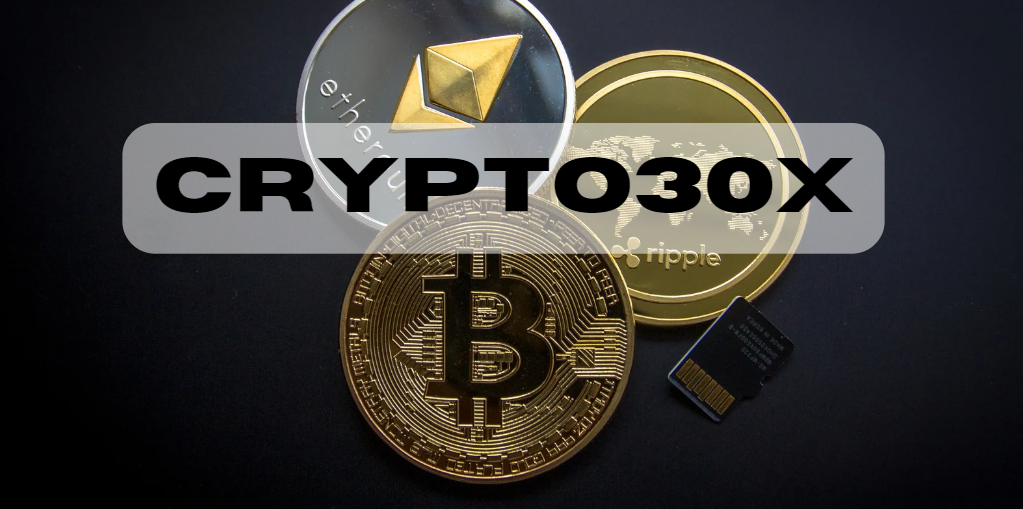Cryptocurrencies have revolutionized the financial world, offering a decentralized and secure means of transferring value. Among these digital assets, the term “crypto coin” is commonly used to describe any currency that exists electronically and uses cryptography to secure transactions.
This comprehensive guide aims to provide an in-depth analysis of crypto coins, exploring their history, technology, types, uses, benefits, and risks. Whether you are a seasoned investor or a curious beginner, this article will offer valuable insights into the world of crypto coins.
Contents
What is a Crypto Coin?
A crypto coin is a digital or virtual currency that uses cryptography for security. Unlike traditional currencies issued by governments (fiat currencies), crypto coins operate on decentralized networks based on blockchain technology. A blockchain is a distributed ledger enforced by a network of computers, ensuring transparency and immutability of transactions.
History of Crypto Coins
The Birth of Bitcoin
The concept of digital currency isn’t new, but it was only with the advent of Bitcoin in 2009 that crypto coins became a reality. Created by an anonymous person or group of people using the pseudonym Satoshi Nakamoto, Bitcoin introduced the idea of a decentralized ledger that records all transactions across a network of computers.
Growth and Diversification
Following Bitcoin’s success, numerous other crypto coins emerged, each with unique features and uses. Ethereum, introduced in 2015 by Vitalik Buterin, expanded the blockchain’s capabilities by enabling smart contracts and decentralized applications (DApps). Today, thousands of crypto coins exist, catering to various use cases and industries.
How Crypto Coins Work
Blockchain Technology
At the core of every crypto coin is blockchain technology. A blockchain is a chain of blocks, each containing a list of transactions. These blocks are linked using cryptographic hashes, ensuring that once data is recorded, it cannot be altered.
Decentralization
Crypto coins operate on decentralized networks, meaning no central authority controls the currency. Instead, transactions are verified by network nodes through consensus mechanisms like Proof of Work (PoW) or Proof of Stake (PoS).
Cryptography
Cryptography secures crypto coins, ensuring that only the intended recipient can access the funds. Public and private keys are used to send and receive crypto coins, providing a high level of security and anonymity.
Types of Crypto Coins
Bitcoin (BTC)
Bitcoin is the first and most well-known crypto coin. It is often referred to as digital gold due to its limited supply (21 million coins) and store of value properties.
Ethereum (ETH)
Ethereum is a decentralized platform that enables smart contracts and DApps. Its native currency, Ether, is used to pay for transactions and computational services on the network.
Altcoins
Altcoins are all other crypto coins besides Bitcoin. Some popular altcoins include Litecoin (LTC), Ripple (XRP), and Cardano (ADA). Each altcoin aims to improve upon Bitcoin’s limitations or offer new functionalities.
Uses of Crypto Coins
Digital Payments
One of the primary uses of crypto coins is for digital payments. Crypto coins enable fast, secure, and low-cost international transactions, making them ideal for cross-border payments.
Investment
Crypto coins have become a popular investment asset due to their high volatility and potential for significant returns. Investors buy and hold crypto coins in the hope that their value will increase over time.
Smart Contracts
Crypto coins like Ethereum enable the execution of smart contracts, self-executing contracts with the terms directly written into code. These contracts eliminate the need for intermediaries, reducing costs and increasing efficiency.
Decentralized Finance (DeFi)
DeFi refers to a broad range of financial services built on blockchain technology. Crypto coins play a crucial role in DeFi, enabling lending, borrowing, and trading without traditional financial institutions.
Benefits of Crypto Coins
Security
Crypto coins use advanced cryptography to secure transactions, making them resistant to fraud and hacking.
Transparency
Blockchain technology ensures that all transactions are transparent and traceable, reducing the risk of corruption and fraud.
Decentralization
The decentralized nature of crypto coins means no single entity controls the network, promoting financial freedom and reducing the risk of censorship.
Low Transaction Costs
Crypto coin transactions often have lower fees compared to traditional banking and payment systems, especially for international transfers.
Risks of Crypto Coins
Volatility
Crypto coins are highly volatile, with their value fluctuating dramatically in short periods. This volatility can lead to significant financial losses for investors.
Regulatory Uncertainty
The regulatory environment for crypto coins is still evolving, with different countries adopting varying approaches. This uncertainty can impact the value and acceptance of crypto coins.
Security Risks
While crypto coins themselves are secure, the platforms and wallets used to store and trade them can be vulnerable to hacking and fraud.
Limited Acceptance
Despite growing popularity, crypto coins are not universally accepted. Some businesses and countries still do not recognize or accept crypto coins as a form of payment.
How to Get Started with Crypto Coins
Choosing a Crypto Exchange
To buy crypto coins, you need to use a crypto exchange. Some popular exchanges include Binance, Coinbase, and Kraken. When choosing an exchange, consider factors like security, fees, and supported currencies.
Creating a Wallet
A crypto wallet is used to store your crypto coins securely. Wallets can be hardware-based (like Ledger or Trezor) or software-based (like MetaMask or Trust Wallet).
Buying Crypto Coins
Once you have set up an account on an exchange and created a wallet, you can buy crypto coins using fiat currency or other crypto coins. Make sure to enable two-factor authentication for added security.
Future of Crypto Coins
Mainstream Adoption
As more businesses and consumers become aware of the benefits of crypto coins, mainstream adoption is expected to grow. This could lead to increased acceptance and integration of crypto coins into everyday transactions.
Technological Advancements
Continued advancements in blockchain technology will likely lead to more efficient and scalable crypto coin solutions. Projects like Ethereum 2.0 aim to address current limitations and improve the usability of crypto coins.
Regulatory Developments
As the regulatory landscape for crypto coins evolves, clearer guidelines and standards will emerge. This could enhance investor protection and promote the responsible use of crypto coins.
Conclusion
Crypto coins represent a significant innovation in the world of finance, offering a decentralized, secure, and transparent means of transferring value. While they come with risks, their potential benefits make them an attractive option for digital payments, investment, and financial services. As technology advances and regulatory frameworks develop, the future of crypto coins looks promising, paving the way for greater adoption and integration into the global economy.
FAQs about Crypto Coins
Q1: What is the difference between a crypto coin and a crypto token? A: A crypto coin operates independently on its blockchain (e.g., Bitcoin, Ethereum), while a crypto token is built on an existing blockchain (e.g., ERC-20 tokens on Ethereum).
Q2: How can I ensure the security of my crypto coins? A: Use reputable exchanges and wallets, enable two-factor authentication, regularly update your software, and consider using hardware wallets for long-term storage.
Q3: Are crypto coin transactions anonymous? A: While crypto coin transactions offer a degree of privacy, they are not completely anonymous. Blockchain records are public, and with sufficient analysis, transactions can sometimes be traced back to individuals.
Q4: Can I use crypto coins for everyday purchases? A: Some businesses accept crypto coins for payments, but their acceptance is not yet universal. Check if your preferred merchants accept crypto coins before attempting to use them for purchases.
Q5: What are stablecoins? A: Stablecoins are a type of crypto coin designed to maintain a stable value by being pegged to a fiat currency or other assets. Examples include Tether (USDT) and USD Coin (USDC).













































